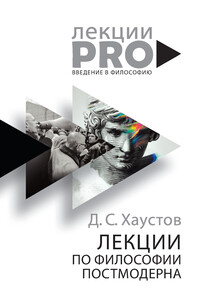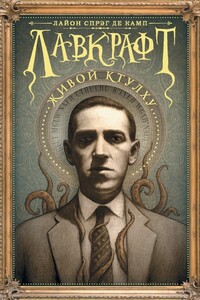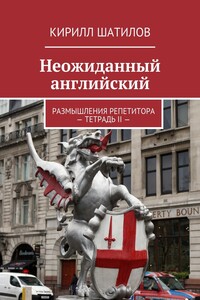Английский язык для судовых электромехаников - [10]
If the wires are accessible, test each circuit separately. The lamp should light brightlv when the armature circuit is tested. The field should produce a dim light. If it is not known which of the four wires' are the shunt field and which the armature, they can be determined by this test. If the armature circuit shows an open, the trouble may be the brushes, the connections to the brushes, or the armature windings; if the field tests open, then the trouble is either the field coil or its connections.
C
For testing purpose the motor is considered as having three circuits. Six leads are brought out of a motor.
If the armature leads are tested with the test lamp, the lamp should light, indicating a complete circuit. If the open is in the armature circuit, the trouble is in the brushes or connections to the brushes or the
interpole. If the trouble is in the field, test for a complete circuit from one coil to another.
23 15
Practice pronunciation. Open your books and repeat in pauses 9 paragraphs of the recorded text “Duties of Electricians” after the speaker. Then close your books and do the same with paragraphs 10—14.
24 6
Listen to the tape-recorded dialogue and be prepared to dwell upon its subject.
Long Distance Cables
Bob: The old man I shan’t be able to. . .
Norah: What old man?
В.: I mean H. B., that’s to say Henry Burton, the managing director of the works.. .
N.: Oh, I see! And what does he say?
B.: He says I shan’t be able to go away for the holidays unless I trace the fault!
N.: Are you serious?
B.: Of course, I am! The cable, I mean to say the long distance cable, has broken down and I’ll have to stay here until. . .
N.: Oh, Bob! That’s really dreadful: But will you be able to find out what’s wrong?
B.: Of course I will!
N.: But you won’t be allowed to leave London until you’ve put everything right!
B.: But I tell you I will, and when I do I shall get a huge reward...
N.: But what’s happened?
B.: Er... well, you see, a cable consists of a core dielectric and a metal sheath. Now, the life of a cable varies according to the material from which it has been made, and the current it carries. This time it was a high-tension current, but to come back to the subject when a cable has been used for some time, voids are formed in the dielectric, and are filled with gases. Gradually the voids get larger and larger until the day when they touch the core and the sheath. Then the current begins to flow...
N.: So that’s what happened?!
В.: I haven’t said that! I’m pretty sure no voids have been formed this time because the cables been used for a couple of months only.
N.: Dash it! So what’s happened?!
B.: I’m certain someone must’ve cut the cable deliberately. . .
N.: Oh, darling! You’re a genius! You’re Sherlock Holmes the Second!
I wonder whether you’ll be able to find out who’s done it!
B.: Of course, I will! I’ve already done so. I know the fellow pretty well and so do you!
N. (more than surprised): Who’s he?
B. (with modesty): It’s me... I cut the cable myself!
The fourth class period
25 7
Work in pairs. Dwell upon the subject of the dialogue above. Expand the ideas expressed in the dialogue.
a) In the following sentences insert the proper form from the list:
a) postponing; b) co-ordinating; c) being sent; d) mooring; e) passing; f) flowing; g) being subjected; h) leaving; i) being heated; j) entering.
1. While... through narrows and canals, when... or... a port and when... they are to keep watches in the fixed place. 2. On .. . these salts decompose. 3. Before. .. to the warehouse, the cases were counted and marked. 4. The goods were taken to the warehouse instead of. . . to the factory. 5. A committee has been established for the purpose of. . . the nomenclature. 6. Without. . . to special treatment rubber cannot be extensively used. 7. They were against. . . the discussion of this problem.
8. A trouble seems to prevent the current from. . . directly to the machine.
b) Give the Russian equivalents for the above sentences.
27 3
Reword these sentences.
Model: It is often better to drive slowly. — Driving slowly is often better.
1. To design such a mechanism required much training. 2. One method of obtaining such fields is to use a number of circular coils on a common axis. 3. It is of great importance to develop new electronic devices.
4. It would seldom be desirable to open a circuit on account>1! of a small momentary overload. 5. It was not so difficult to understand the electronic control equipment.
28 5
Give Russian equivalents for the following sentences. Pay careful attention to the Gerund.
1. The mistake can only be found by going through all the steps of the procedure. 2. On placing an unmagnetized iron bar near a strong magnet, we magnetize it. 3. He succeeded in solving the problem. 4. An electric current is capable of decomposing water. 5. The simple wire loop connected to a two-section commutator is hardly suitable for running as a motor. 6. Copper has the useful property of being a good conductor of electricity. 7. He stopped working an hour ago. 8. I know of your having achieved good results.

В книге рассказывается история главного героя, который сталкивается с различными проблемами и препятствиями на протяжении всего своего путешествия. По пути он встречает множество второстепенных персонажей, которые играют важные роли в истории. Благодаря опыту главного героя книга исследует такие темы, как любовь, потеря, надежда и стойкость. По мере того, как главный герой преодолевает свои трудности, он усваивает ценные уроки жизни и растет как личность.

В книге рассказывается история главного героя, который сталкивается с различными проблемами и препятствиями на протяжении всего своего путешествия. По пути он встречает множество второстепенных персонажей, которые играют важные роли в истории. Благодаря опыту главного героя книга исследует такие темы, как любовь, потеря, надежда и стойкость. По мере того, как главный герой преодолевает свои трудности, он усваивает ценные уроки жизни и растет как личность.

В данной книге историк философии, литератор и популярный лектор Дмитрий Хаустов вводит читателя в интересный и запутанный мир философии постмодерна, где обитают такие яркие и оригинальные фигуры, как Жан Бодрийяр, Жак Деррида, Жиль Делез и другие. Обладая талантом говорить просто о сложном, автор помогает сориентироваться в актуальном пространстве постсовременной мысли.

Один из самых влиятельных мифотворцев современности, человек, оказавший влияние не только на литературу, но и на массовую культуру в целом, создатель «Некрономикона» и «Мифов Ктулху» – Говард Филлипс Лавкрафт. Именно он стал героем этой книги, в своем роде уникальной: биография писателя, созданная другим писателем. Кроме того многочисленные цитирования писем Г. Ф. Лавкрафта отчасти делают последнего соавтором. Не вынося никаких оценок, Лайон Спрэг де Камп объективно рассказывает историю жизни одной из самых противоречивых фигур мировой литературы.

Если вы думаете, будто английский язык – это предмет и читать о нём можно только в учебниках, вы замечательно заблуждаетесь. Английский язык, как и любой язык, есть кладезь ума и глупости целых поколений. Поразмышлять об этом и предлагает 2 тетрадь книги «Неожиданный английский», посвящённая происхождению многих известных выражений, языковым стилям и грамматическим каверзам.

В книге рассказывается история главного героя, который сталкивается с различными проблемами и препятствиями на протяжении всего своего путешествия. По пути он встречает множество второстепенных персонажей, которые играют важные роли в истории. Благодаря опыту главного героя книга исследует такие темы, как любовь, потеря, надежда и стойкость. По мере того, как главный герой преодолевает свои трудности, он усваивает ценные уроки жизни и растет как личность.

В книге рассказывается история главного героя, который сталкивается с различными проблемами и препятствиями на протяжении всего своего путешествия. По пути он встречает множество второстепенных персонажей, которые играют важные роли в истории. Благодаря опыту главного героя книга исследует такие темы, как любовь, потеря, надежда и стойкость. По мере того, как главный герой преодолевает свои трудности, он усваивает ценные уроки жизни и растет как личность.